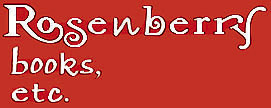Strikingly Authentic Haiku and Senryu by Elliot Nicely.
The fine, small collection of haiku and senryu, Tangled Shadows: Senryu and Haiku by Elliot Nicely,
is printed on recycled paper with Japanese stab binding and is laced with linen cord. Many of the haiku from this collection (or earlier versions of them) have previously appeared in various journals. The haiku and senryu are spaced one to a page which gives plenty of space around then for the reader to contemplate their beauty.
Not many haiku poets can sustain a high level of excellence throughout a collection, as Nicely does, but I do have one or two favourites:
dandelion field
the summer wind casts
a thousand wishes
what might have been . . .
our shadows become one
then part
Nicely expresses his haiku with ease. They are sometimes sensual and at other times evocative of nature or contain a personal perspective:
asking about
past lovers –
closed morning glories
Several of the poems are one-line haiku and it is the mark of a fine poet that they have the ability and confidence to experiment with line and rhythm. In the context of this collection, the addition of risk-taking places Nicely’s work in the contemporary arena:
the last time we spoke tangled shadows of telephone wires
The importance of nature in his life is demonstrated in several haiku: “two much moonshine the echo of bullfrogs”. But most of the haiku are more concerned with connecting human experience with nature rather than it being observed at a distance, such as we see in “her eyes / avoid my apology / false spring”. This respect for the natural world often interfaced sometimes sympathetically, at other times with the human world, is in the haiku tradition. Often the haiku are simple in the best sense and I particularly like “to forgive again no moon only stars”. Nicely’s haiku can strike an evocative and sometimes slightly enigmatic note as in “insomnia / . . . waiting / and weighting” but there are also touches of humour and compassion in his work:
to forgive again no moon only stars
What is striking about the haiku in this collection is its authenticity. There is also an approach that makes the reader feel that Nicely is speaking to them: because of the simplicity of the content, the haiku seem intimate. The book, attractively presented with one haiku to a page has been sensitively edited and will make a nice addition to a reader’s haiku library.
Review by Patricia Prime, New Zealand Poetry Society



